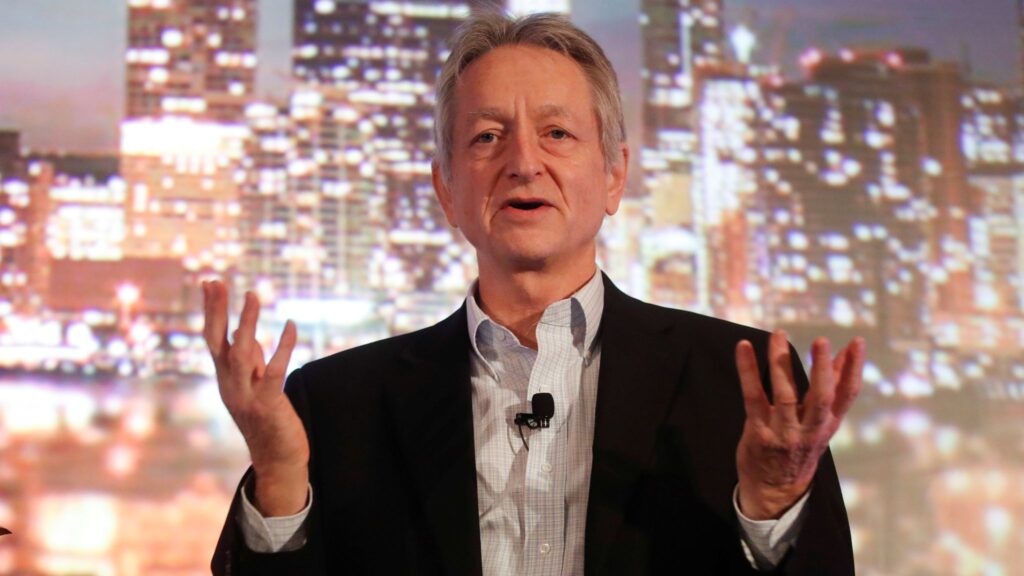AI教父Geoffrey Hinton警告 人工智能或比人類更聰明。
人工智能 (AI) 的先驅研究員、被廣泛認為是人工智能教父的杰弗裡·欣頓 (Geoffrey Hinton) 已從谷歌辭職,理由是擔心該領域的發展會帶來越來越大的危險。 在接受 BBC 採訪時,欣頓表示,由人工智能驅動的聊天機器人可能很快就會超過人腦所掌握的信息水平,這引發了人們對試圖將人工智能用於“壞事”的“壞人”的擔憂。 他警告說,這最終可能會“創造出‘我需要獲得更多權力’之類的子目標”。 Hinton 辭職之際,一封公開信——由包括科技億萬富翁埃隆·馬斯克在內的數十位 AI 領域人士聯名——呼籲暫停所有比當前版本的 AI 聊天機器人 ChatGPT 更先進的開發,以便採取強有力的安全措施 可以設計和實施。
Hinton 在神經網絡和深度學習方面的開創性研究為當前的人工智能係統(如 ChatGPT)鋪平了道路。 神經網絡是在學習和處理信息的方式上類似於人腦的系統,使人工智能能夠像人一樣從經驗中學習。 這稱為深度學習。 聊天機器人只是人工智能的一個方面,即使它們是目前最流行的。 人工智能支持決定視頻流平台決定你接下來應該觀看什麼的算法。 它可以在招聘中用來過濾工作申請,被保險公司用來計算保費,它可以診斷醫療狀況,儘管人類醫生仍然擁有最終決定權。
然而,Hinton 對 AI 安全和控制的擔憂得到了該領域許多專家的認同。 自 Hinton 在 1980 年代建立開創性的圖像分析神經網絡以來,AI 系統發生了巨大的變化,其發展速度甚至令其創造者感到驚訝。 從短期來看,Hinton 認為 AI 帶來的好處遠多於風險,但他警告說我們需要擔心進展速度,因為預計事情會很快好轉。 從長遠來看,Hinton 認為 AI 系統正在發展的智能與我們作為生物系統所擁有的智能有很大不同,我們需要退後一步,在 AI 安全和控制方面進行大量和緊急的投資。

Geoffrey Hinton 警告: 人工智能或比人類更聰明
Hinton 是 AI 科學專家,而不是政策專家,他認為政府有責任確保 AI 的開發有很多思考如何阻止它流氓。 他強調,他不想批評谷歌,這家科技巨頭“非常負責任”。 谷歌首席科學家 Jeff Dean 在一份聲明中表示,該公司仍然致力於對 AI 採取負責任的方法,並不斷學習了解新出現的風險,同時也在大膽創新。
在短期內,人工智能的好處是顯而易見的。 然而,正如 Hinton 警告的那樣, 人工智能或比人類更聰明 。AI 的發展引發了關於我們想要創造什麼樣的未來以及我們想要生活在什麼樣的社會中的深刻問題。重要的是我們要謹慎行事並投資於 AI 安全和控制,以確保 人工智能的發展方式有利於人類,而不僅僅是少數人。
Geoffrey Hinton, a pioneering researcher in artificial intelligence (AI) and widely regarded as the godfather of AI, has resigned from Google, citing concerns about the growing dangers associated with developments in the field. In an interview with the BBC, Hinton said that chatbots powered by AI could soon overtake the level of information that a human brain holds, raising fears about “bad actors” who would try to use AI for “bad things.” He warned that this might eventually “create sub-goals like ‘I need to get more power’”. Hinton’s resignation comes as an open letter – co-signed by dozens of people in the AI field, including tech billionaire Elon Musk – has called for a pause on all developments more advanced than the current version of AI chatbot ChatGPT, so that robust safety measures could be designed and implemented.
Hinton’s pioneering research on neural networks and deep learning has paved the way for current AI systems, like ChatGPT. Neural networks are systems that are similar to the human brain in the way they learn and process information, enabling AIs to learn from experience, as a person would. This is called deep learning. Chatbots are just one aspect of artificial intelligence, even if they are the most popular right now. AI is behind the algorithms that dictate what video-streaming platforms decide you should watch next. It can be used in recruitment to filter job applications, by insurers to calculate premiums, it can diagnose medical conditions, although human doctors still get the final say.
However, Hinton’s concerns about AI safety and control are shared by many experts in the field. AI systems have evolved dramatically since Hinton built a pioneering image analysis neural network in the 1980s, and their pace of acceleration has surprised even their creators. In the shorter term, Hinton thinks AI will deliver many more benefits than risks, but he warns that we need to worry about the rate of progress because things are expected to get better quite fast. In the long term, Hinton believes that the kind of intelligence AI systems are developing is very different from the intelligence we have as biological systems, and that we need to take a step back and invest heavily and urgently in AI safety and control.
Hinton is an expert on the science of AI, not policy, and he believes that it is the responsibility of government to ensure AI is developed with a lot of thought into how to stop it going rogue. He stressed that he did not want to criticise Google and that the tech giant had been “very responsible.” Google’s chief scientist Jeff Dean said in a statement that the company remains committed to a responsible approach to AI and that it is continually learning to understand emerging risks while also innovating boldly.
In the short term, the benefits of AI are clear. However, as Hinton warns, AI’s growth raises profound questions about what kind of future we want to create, and what kind of society we want to live in. It is important that we proceed with caution and invest in AI safety and control, to ensure that AI develops in ways that benefit humanity and not just a select few.